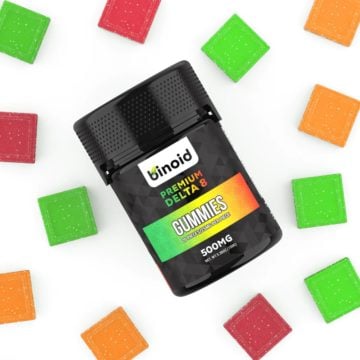
Is Weed Delivery Legal in Vermont
In the scenic Green Mountain State of Vermont, the question on many minds is, “Is weed delivery legal in Vermont?” As the cannabis landscape undergoes significant transformations across the United States, it’s crucial to understand the ever-evolving laws surrounding marijuana, both for medical and recreational use. In this article, we will delve into Vermont’s journey from decriminalization to full legalization, explore the distinctions between recreational and medical marijuana delivery, and uncover the regulatory framework governing cannabis delivery services in the state.
This post is intended as information and for general knowledge only. It is not a substitute for medical advice, diagnosis, or treatment. It is recommended that you talk to a healthcare professional about this before introducing cannabinoids into your daily routine (especially if you have been diagnosed with any medical conditions or are under any medication). It is not recommended to drive or operate any machinery when using cannabis- or hemp-derived products. Use responsibly!
Current Marijuana Laws in Vermont
Vermont has had a complex relationship with marijuana over the years. Historically, the state has been progressive in its approach to cannabis, decriminalizing its possession in 2013. This meant that possessing small amounts of marijuana was no longer a criminal offense, but rather a civil penalty.
However, the most significant milestone in Vermont’s marijuana journey came in 2018 when Governor Phil Scott signed a bill legalizing recreational marijuana. This marked a significant shift, allowing adults in the Green Mountain State to possess and cultivate small amounts of marijuana for personal use. While the possession and cultivation of marijuana became legal, the sale and commercial distribution of cannabis remained restricted.
Despite Vermont’s progressive stance, federal law still classifies marijuana as a Schedule I controlled substance. This creates a complex legal landscape, as federal law contradicts state laws in states where marijuana is legal. Vermont, like other states, grapples with the tension between state and federal marijuana laws.
The Evolution of Vermont’s Marijuana Legalization
The journey to marijuana legalization in Vermont has been marked by several milestones. It started with the decriminalization of marijuana in 2013, followed by the legalization of recreational marijuana in 2018. The state’s efforts to adapt to changing attitudes toward cannabis have been commendable.
Key legislative acts and ballot measures played a significant role in shaping Vermont’s marijuana policies. Advocacy groups and influential individuals, such as Vermont’s former Attorney General T.J. Donovan, played pivotal roles in advancing the cause of cannabis legalization in the state.
Recreational vs Medical Marijuana Delivery
Understanding the distinction between recreational and medical marijuana is fundamental to grasping the nuances of marijuana delivery in Vermont. Medical cannabis is prescribed to patients for specific medical conditions, and access to medical marijuana requires registration with the Vermont Marijuana Registry. Eligible patients can receive medical marijuana through various means, including delivery services.
Recreational marijuana, on the other hand, is available to adults for personal use. While the possession and cultivation of recreational marijuana are legal, there are specific regulations and restrictions concerning its sale and distribution.
Licensed Dispensaries and Delivery Services
Licensed dispensaries play a central role in Vermont’s marijuana delivery ecosystem. These dispensaries are authorized by the Vermont Cannabis Control Board (VCCB) to provide marijuana products to registered medical patients and adult consumers. Dispensaries are responsible for ensuring the safe and responsible distribution of cannabis.
Dispensaries offering delivery services undergo a rigorous application and licensing process to ensure compliance with state regulations. These licensed establishments are instrumental in providing access to marijuana delivery for both medical and recreational users.
Delivery Regulations and Restrictions
Delivery services in Vermont are subject to a comprehensive set of regulations designed to ensure the safe and responsible distribution of marijuana. These regulations cover a wide range of aspects, including age requirements for customers and delivery drivers, geographic limitations, and zoning restrictions.
Security and transportation regulations are of paramount importance to prevent diversion and ensure that marijuana products reach their intended destinations securely. These measures are put in place to protect both the industry and the public.
How to Access Marijuana Delivery Services

For those seeking access to marijuana delivery services, the process can vary depending on whether they are medical patients or recreational users. Medical marijuana patients must first register with the Vermont Marijuana Registry, a crucial step in accessing medical cannabis.
Once registered, medical patients can place orders for delivery through licensed dispensaries. The process typically involves selecting desired products, scheduling delivery, and arranging payment through approved methods.
For recreational users, accessing delivery services is contingent upon visiting licensed dispensaries and complying with age restrictions and other regulations. Dispensaries provide detailed information on how to place orders and obtain delivery services.
Challenges and Concerns
While marijuana delivery services provide convenience to users, safety concerns remain a prominent issue. Dispensaries and delivery services prioritize security measures to minimize risks associated with the distribution of marijuana products.
Public health concerns and opposition to marijuana delivery also persist. Critics argue that delivery services may lead to increased usage among vulnerable populations. It’s important to note that data on accidents or incidents involving marijuana delivery remains a topic of ongoing research and debate.
Future Outlook
The future of marijuana delivery in Vermont is a subject of speculation and anticipation. As Vermont continues to navigate the complexities of marijuana legalization, changes to existing laws and regulations may occur. Pending legislation and proposed amendments could further shape the landscape of cannabis delivery services in the state.
Moreover, the cannabis industry as a whole is experiencing rapid evolution and innovation, which could impact delivery services. Advances in technology, such as delivery apps and improved logistics, may contribute to a more efficient and accessiblecannabis delivery experience for Vermont residents.
Conclusion
In conclusion, the question, “Is weed delivery legal in Vermont?” is a pertinent one, considering the state’s progressive stance on marijuana. Vermont’s journey from decriminalization to full legalization has been marked by key legislative acts and the efforts of influential individuals and organizations. Understanding the distinctions between recreational and medical marijuana delivery is crucial for consumers.
Licensed dispensaries play a pivotal role in ensuring the safe distribution of cannabis products to both medical patients and recreational users. However, a comprehensive regulatory framework governs delivery services to maintain security and compliance.
While challenges and concerns persist, the future of marijuana delivery in Vermont is promising, with potential changes in legislation and ongoing industry innovations. For those interested in accessing marijuana delivery services in the Green Mountain State, staying informed about the legal landscape and responsible usage is paramount.














